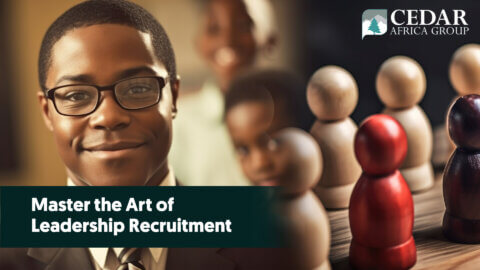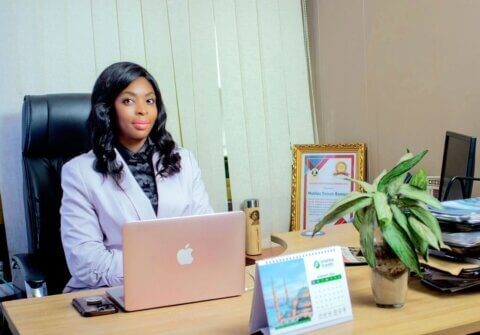You did it! What you may ask? Well, first, you prepared your CV or resume and cover letter in a way that sells your potential for the job. Second, you sent it out in response to an ad. Third, you have received a call for an interview and are now filled with so much excitement you can’t help yourself but share the news with those near and dear. Shortly, the excitement turns to nerves, anxiety, and worry about how you will perform.
The nerves birth a long list of questions in your mind; will you say the wrong thing? Will the panel like you? Do you have the right experience? Are you aiming too high? The questions go on and on but you need to just stop and take a breath. Now relax, we have all been there. Relax because it is possible to prepare well for the interview so that your nerves do not get the better of you. Allow me to share seven key things that will help in your next interview.
- Get all the information: Even as that seems obvious many people are distracted by the excitement and nerves. This leads to confusion about the interview date, time, and location. Do not make assumptions especially about the location so find out the street, building, floor, and the name of the person you are going to see. Additionally, find out what information is required like printed certificates, a CV or Resume, online tests to take, etc. Be sure to clarify then write it down so you don’t forget or get confused.
- Research the organisation and role: Be sure to do your homework and research the organisation in case you are asked what you know about the organisation. Be prepared to give a well-researched response. What is the mission and vision? What are the key products and services? What does the company stand for? What have they done in the past? What awards have they won? This isn’t to say cram the whole website, rather have a good understanding of the organisation’s history, core business operations, products, services, recent developments, leadership team, etc. When prepared well, candidates exude greater confidence and ease so they stand out immediately. Preparation also means you review the job description and reflect on why you would be the best candidate for the job. How do your qualifications and experience match the requirements? What value do you bring?
- Consider your responses to common interview questions: There are questions you will likely be asked including, Tell us about yourself? Why do you want to work here? What do you know about us? What are your strengths and weaknesses? What are your key achievements and how do they relate to this position? Why should we hire you? Take time to prepare in advance. Roleplay your responses with a friend or family member and let them critique your responses then give feedback on how to improve. Listen to your answers and hear your responses then assess against what you want to say and adjust.
- Ask questions: It is important to ask the interview panel a few questions. It shows you have done your homework and are well-versed with the organisation. Ask about anything that is unclear to you. Ask about company culture, reporting relationships, or even whether is it a new position or existing one. What does success look like in the position? What are the next steps in the hiring process? These questions will help position you as well as give you valuable information.
- Personal Image: Think through how you will present yourself the night before. What will you wear? What does it say about you? Ensure you are in smart, comfortable clothes that fit you well; not too tight, short, revealing, or over-sized. Be sure to be clean and smell fresh. Carry a notebook and pen in case you need to make notes with keywords to help you recall a question asked by a panel member.
Also Read: The Power of Gratitude
- Timeliness: Arrive early. My personal rule of thumb is to arrive fifteen minutes before time. This demonstrates respect for the time of those you are meeting and is a good general rule for life. It also gives you time to catch your breath, settle, and get comfortable. If you arrive late, you will likely be flustered, unsettled mentally, and in general disarray and it will show up in your interview performance. Put measures in place to help you arrive early; plan your route, leave in good time to allow for any challenges on the way, and allow time to course correct. If you encounter a situation beyond your control and anticipate you will be late, call your contact person and send an email alerting them of the same.
- Self-talk: What do you say to and about yourself? Do you say, ‘Gosh I don’t think I can do this’ or ‘ They are not going to like me’ or ‘ I don’t think I am good enough’, ‘They will think I am too old’, ‘ I don’t have connections.’ I won’t continue but the list is almost endless. These are all limiting beliefs that will definitely reflect in your body language, posture, tone, and overall confidence. How do you get over then? Affirm yourself! Consciously replace ‘cannot’ with ‘can’. Remind yourself you are able and good enough. Remember you are your thoughts and they become a reality. Take time to visualise; mentally rehearse how you see the interview unfolding in vivid pictures. Just like all great athletes do in their pre-game routine, see your interview ‘performance’ in your mind then go for it!
Also Read: 3 Culture Change Pillars
You will pass that next interview despite all past ones, take the time to prepare well. We will cover interview etiquette in a later blog post but for now All the Best!!!















Thanks for this insight, I have learnt a lot and no more “I don’t have connection” word in me.